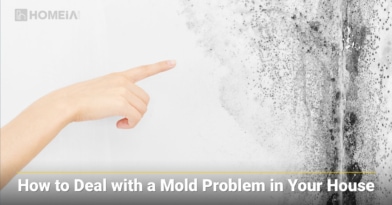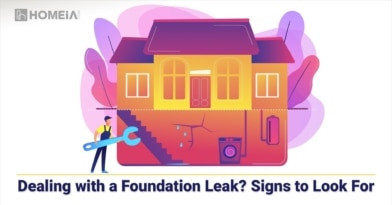7 Common Causes of Water Leaks
- Author:by David Trounce
- Category: Home Maintenance
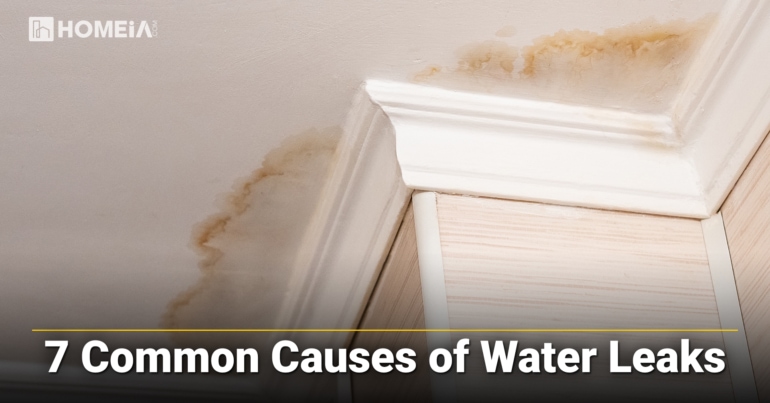
Even small water leaks can have significant consequences, including property damage and expensive water bills.
Not only can a leak left unfixed cause major structural damage, but it can also cause mold to develop. Mold is usually found in moist areas and on damp surfaces. It can lead to unpleasant smells and even health hazards, especially in the case of black mold. Black mold produces mycotoxin spores that may cause respiratory illnesses and symptoms such as sneezing and itchy eyes and skin.
While some leaks — such as tap leaks — can be quite easy to detect, other types of leaks can be harder to identify. These hidden leaks, though, often have indicators that make them detectable. While it might be tempting to ignore a little puddle of water on the floor, it could be a sign of a massive problem behind the wall or under the floor.
When you see any sign of a leak, it is a good idea to seek the advice of a professional promptly in order to prevent further damage.
Water leaks can occur for many reasons, some of which can be prevented through proper maintenance and close inspection. Below are some common causes of water leaks.
Below are top 7 common causes of water leaks:
Table of Contents:
1. Broken Seals
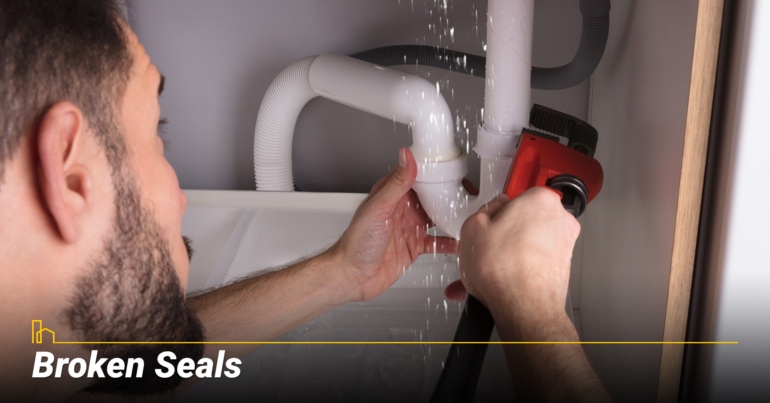
Seals are usually placed around points where pipes are connected to make them able to withstand and sustain the constant flow of water.
around appliances, including washing machines and dishwashers, a rubber sealant is used during installation to prevent leaks.
These seals are originally solid and watertight, but they can begin to wear down as time goes on, reducing their ability to keep water from leaking out.
If you see puddles of water near your appliance, it is usually indicative of a broken seal and a reason to call in a plumber to identify the problem and repair the seal.
How to Deal with a Mold Problem in Your House
When you have a leaking pipe within the walls, mold may also form in its vicinity. Even a leaky roof can lead to mold formation on your ceiling and the wall directly underneath the leak. Here is how to identify and remove mold from your house…
2. Clogged Pipes
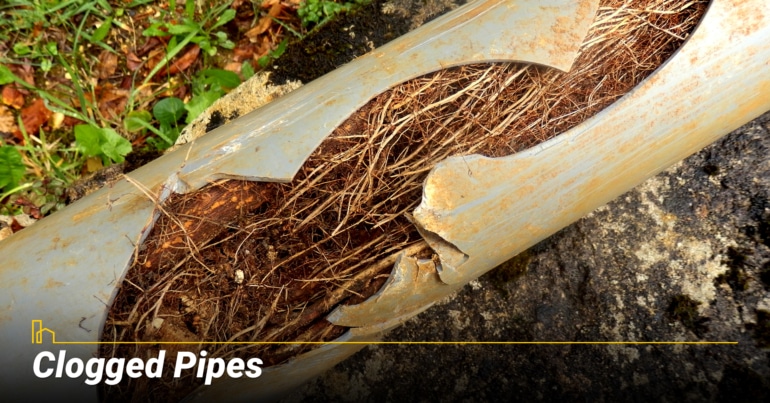
Pipes and drains make waste disposal easy for us, but there is a limit to the objects and fluids you should pour down.
Hair clumps, fatty foods and grease can gradually accumulate in pipes and form a solid mass that blocks the passage of water.
Tree roots are another frequent cause of blockages, and they are a very common cause of burst water pipes outside. When roots block the pipe, water cannot flow through the usual route, and the pipe can break down or burst due to the pressure of the accumulated water.
Once a tree root intrudes into a water pipe, its continued growth results in clogs, and can even result in sewage backups into the home.
Recommended for you
3. Changing Temperatures
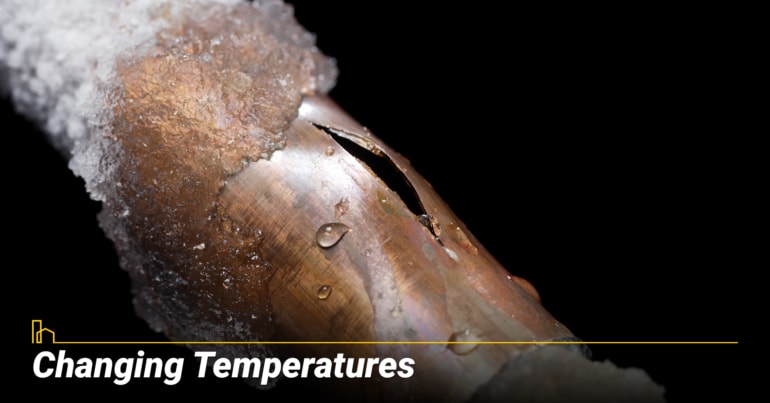
The cycle of the seasons affects the state of your plumbing and is a common cause of water leaks. During the winter, the fluctuating temperatures cause the pipes to expand and contract and water in the pipes can freeze.
Most homeowners are aware of the damage freezing pipes can cause. It is why many people keep their heat on and open cabinets under faucets so warm air can circulate when they are away.
Excessive rain can also cause damage to your plumbing and result in water leaks. When it rains a lot, softening the ground, underground pipes can shift, resulting in cracks.
Since there is nothing you can do about the weather, be sure to be on the lookout for any possible problems.
Weather extremes can make your plumbing vulnerable to problems such as loose connectors, broken seals or cracking due to constant contraction and expansion. Inadequate maintenance of the pipes increases their susceptibility to damage.
The Best 10 Ways to Maintain Your House
Your house is most likely the most expensive purchase of your lifetime — and a safe haven that provides a hub for everyday activities, relaxation and making memories. It doesn’t remain in great shape without some effort, but with some loving care and an organized maintenance schedule, you can manage the upkeep without added stress…
4. Loose Pipe Connectors
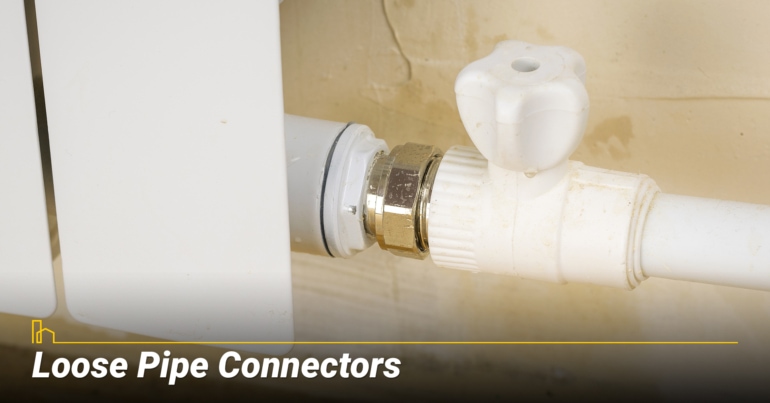
Pipes are joined together through the use of connectors. These connections allow water to be carried to various areas of your home.
However, these connectors can become loose, whether due to the constant movement of the appliances connected to the pipes or to wear and tear.
When connectors become loose, water begins to seep out of the space left between the pipes.
5. Rust and Corrosion
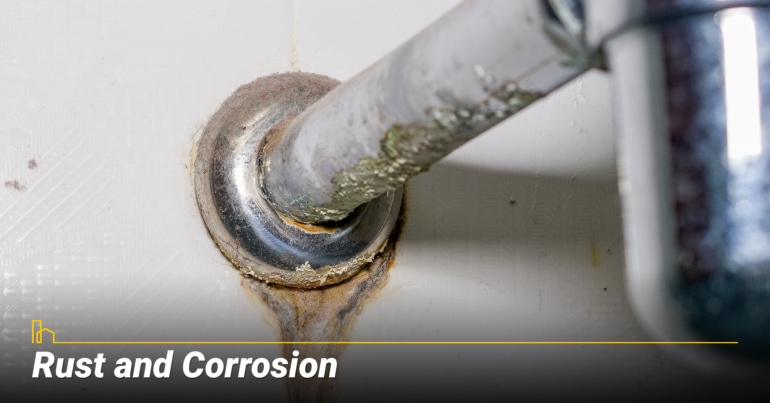
Over time, the pipes in your plumbing succumb to corrosion and rusting, affecting the pipes’ integrity.
Although high-quality pipes can increase the amount of time before corrosion sets in, any aging plumbing system can show signs of wear. Corrosion makes it easier for pipes to break down and for water to find its way out at various points. Hence, it is advisable to have damaged pipes removed and replaced with newer models.
Dealing with a Foundation Leak? Signs to Look For
Foundation leaks crop up for all kinds of reasons. It’s often difficult to tell, though, just how severe the leak you have on your hands is before the worst of the symptoms arise. When in doubt, reach out to local professionals for help fixing any foundation problems that have appeared…
6. High Water Pressure
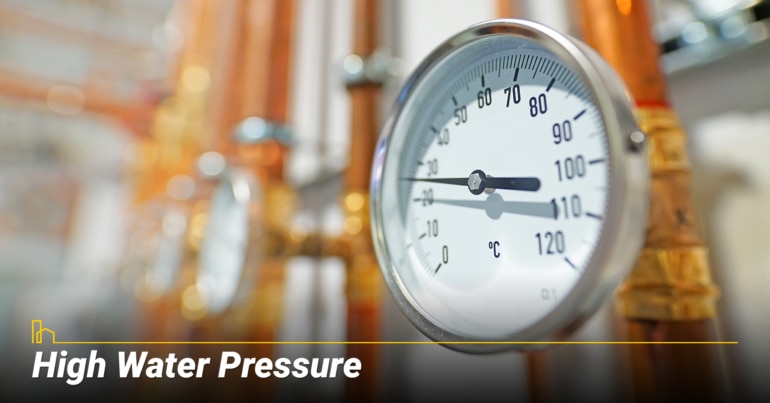
Pipes are designed to withstand a certain amount of pressure, under which they can function optimally.
However, when the pressure becomes too high or too uneven, an immense strain is put on the pipes.
At a point, the pipes can collapse under excess pressure, leading to leaks. Keeping to the recommended water pressure for your plumbing is an effective way to reduce the risk of leaks.
7. Poor Workmanship
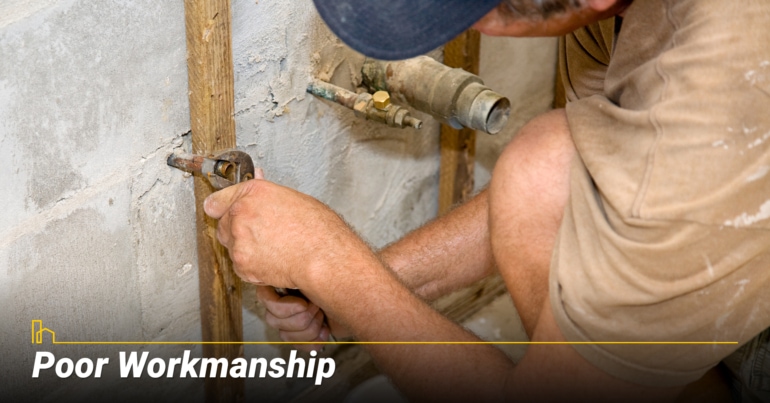
Water leaks can be caused by the actions of an unskilled or inexperienced plumber or DIYer. While it might seem easy enough to fix plumbing issues by yourself due to the numerous guides and tutorials on the internet, you can end up doing more harm than good when you make mistakes.
Plumbing repairs, no matter how small, can lead to significant problems when done incorrectly. Only highly skilled and reputable professionals should be hired to install and fix the plumbing to ensure maximum quality.
Home Improvements Require Permits & Commonly Asked Questions
Did you know that many home improvement projects require permits or that you may be able to find a grant to fund your project? We’re answering the most commonly asked questions about home improvement so you can…
Final Thoughts
When you own a home, it is crucial that you understand the potential damage that can result from a water leak. Even slow or small leaks, left untreated, can lead to major damage to your home and be extremely costly to repair.
While some leaks are easy to recognize, such as dripping showerheads and faucets, others are more difficult to detect and might go unnoticed for months.
One simple method to see if you might have a water leak is to look at your water meter. First turn off all the water both inside and outside of your home. If the meter shows that water is being used while the water is off, you likely have a leak. However, you won’t be able to know exactly where the leak is located or how extensive it is.
Another sign that you may have a water leak is a sudden unexpected increase in your water bill.
If you suspect a water leak, call a professional right away and avoid a potential disaster. We hope you find this article helpful. If you do, please share it on your Facebook page so others can benefit from it as well. Thanks in advance!
Recommended for you

